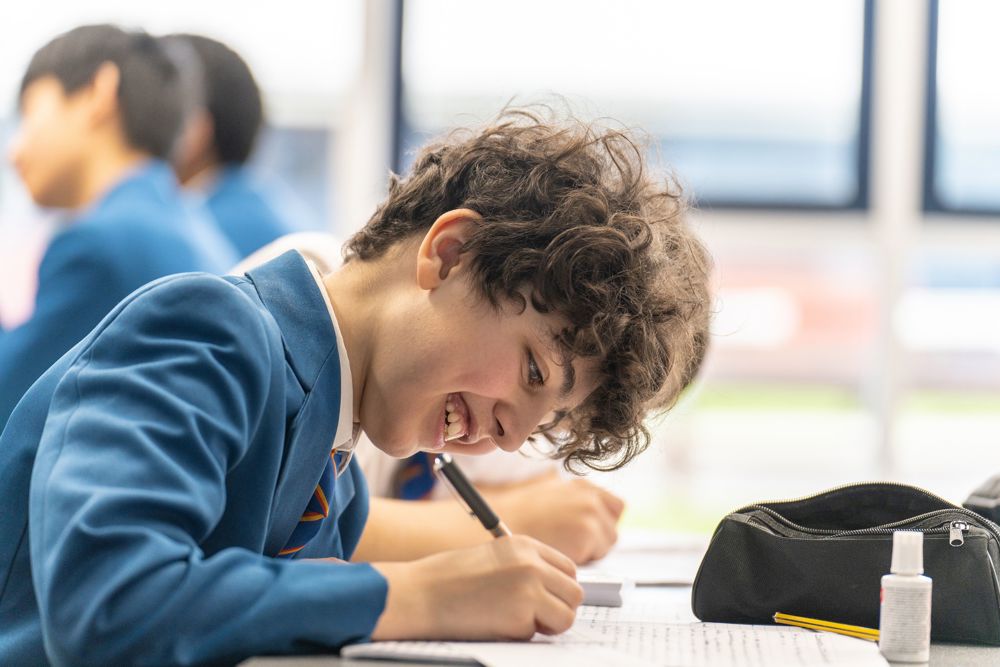
Business Studies
A dynamic and challenging subject, GCSE and A Level Business Studies pupils develop core knowledge and understanding of business strategy, marketing, finance and HR. Students become independent learners, with the ability to apply analytical skills in real-word scenarios and to consider how the external environment affects decision making within business.
Our subject specialist teachers – many of whom have significant experience within commerce and industry – encourage students to value academic endeavour and intellectual inquiry, and to make links with other disciplines such as Business Finance and Mathematics, Government Policies and Politics, and Developmental Economics and Geography.
Curriculum Map

Key Stage 4
Students can choose to take Business Studies from Year 10 and study the Eduqas GCSE Business Specification, which is taught for five periods a fortnight. Weekly homework tasks include completing handouts, answering questions from textbooks, adding to notes, learning key terms for a test in class and revising a whole topic for a test in class. Year 11 students also complete an examination practice question every week to fine-tune their examination technique. Assessment is by examination, with Component 1: Business Dynamics being a 2-hour written examination comprising 62.5% of the total GCSE marks. Component 2 comprises 37.5% of the qualification and consists of a 1.5-hour written examination on Business Considerations.
Year 10
Private vs public sector. Entrepreneurship. Business planning and aims. Types of business organisation. Internal/external growth. Impact of globalisation. Business costs, revenue and profit. Location decisions. Ethical and environmental influences on decision-making. Marketing. Impact of legislation.
Year 11
Organisational structures and how they change as a business grows. Recruitment and selection methods. Benefits and types of training. Methods of motivation. Role of trade unions. Methods of production. Use of technology. Quality control measures. Stages of the supply chain. Sources of finance. Average rate of return. Cash flow. Economic influences on decisions.
Useful Links

Key Stage 5
Pupils study the Eduqas A Level Business Specification and are taught for nine periods a fortnight in Year 12, increasing to 10 periods in Year 13 with weekly homework tasks and past paper questions.
There are three examinations at the end of Year 13; all papers are 2 hours 15 minutes and are equally weighted. Component 1: Business Opportunities and Functions. Component 2: Business Analysis and Strategy. Component 3: Business in a Changing World.
Entry requirement
Grade 6 GCSE Business Studies or Grade 6 English Language (GCSE Business Studies is not an essential requirement for study at A Level).
Year 12
Importance of the entrepreneur and SMEs to the economy. Organisational structures and HR. Production considerations. Marketing and sales. Financial topics.
Year 13
Data analysis. Sales forecasting. Budget variances. Balance sheets. Aims and objectives of organisations. Strategy and management. Internal/external growth. Ansoff matrix theory. SWOT analysis. Decision making models. Investment appraisal methods. Change and risk management. Political, economic, social, technological, ethical, legal and environmental factors. International trade. Globalisation and global growth.
Enrichment
There are a number of Business and Economics societies and clubs for pupils to join and students regularly take part in national competitions such as the Institute of Chartered Accountants in England and Wales (ICAEW) BASE Challenge, the National Entrepreneurship Challenge at the University of Lancaster, the Chartered Institute of Public Finance and Accountancy (CIPFA) Games at De Montfort University and the John Locke Institute Economics Essay Competition. STRS has hosted the Institute of Economic Affairs (IEA) Sixth Form Conference on numerous occasions, and both GCSE and A Level students attend external conferences and webinars on ethical business and environmental considerations. In addition, pupils visit high-profile production facilities such as Land Rover for tours and talks.
Head of Business Studies
Rachel Downes rad@strs.org.uk